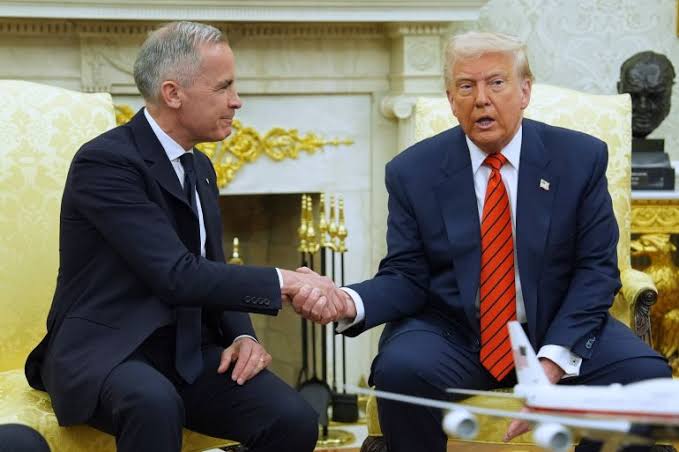OTTAWA (Rajeev Sharma): Prime Minister Mark Carney’s first face-to-face meeting with U.S. President Donald Trump has set the stage for a potentially transformative phase in Canada-U.S. relations, with both leaders calling the talks constructive and forward-looking. The two met Tuesday for nearly two hours at the White House, engaging in public remarks and a private working lunch with key cabinet members and chiefs of staff.
Describing the meeting as the “end of the beginning,” Carney emphasized that while both countries are now “fully engaged,” the real work of reshaping bilateral ties lies ahead. Central to those talks will be resolving Trump’s ongoing trade war and the mounting pressure around the Canada-U.S.-Mexico Agreement (CUSMA), which Trump has indicated he wants to reopen before its scheduled 2026 review.
Carney is expected to brief provincial premiers today on the substance of his Washington visit and outline next steps. The prime minister noted Canada will focus on its domestic strengths bolstering national security and reinvigorating economic growth as part of a broader strategy to navigate increasingly complex trade and diplomatic waters.
“There’s a lot more work to do,” Carney said. “The question is how we will cooperate in the future. How we can build an economic and security relationship built on mutual respect, built on common interests.”
In both public and private, Carney made clear to Trump that Canadians value their sovereignty, quipping that “Canadians are not interested in becoming American, and that will never change.” This message, officials say, was conveyed firmly but diplomatically.
Carney and Trump will meet again in June when Canada hosts the G7 Summit in Alberta. Meanwhile, key challenges loom chief among them, lifting punitive U.S. tariffs on Canadian goods. Trump stated there was “nothing” Carney could say to lift them now, but experts argue Trump’s position could still change, particularly if economic pressure mounts domestically.
“The American economy is about to tank due to tariffs on Canada and others,” said Fen Hampson, a professor of international affairs at Carleton University. “That might be what shifts the equation in Canada’s favour.”
Hampson noted that Carney faces a dual-track negotiation challenge: push back against tariffs in the short term while preparing for a broader renegotiation of trade agreements. Success will depend not only on diplomacy but on the strength and skill of Carney’s incoming cabinet, expected to be announced next week ahead of Parliament’s return.
“He needs people who are not just good managers but strong negotiators,” Hampson emphasized. “That’s who will help get things done at the table.”
As Carney leads Canada into what could be a tense and transformative diplomatic period, his emphasis on sovereignty, security, and strategy appears to set the tone for a determined and measured approach.
Carney-Trump Meeting Marks ‘End of the Beginning’ as Canada Braces for Trade Talks

